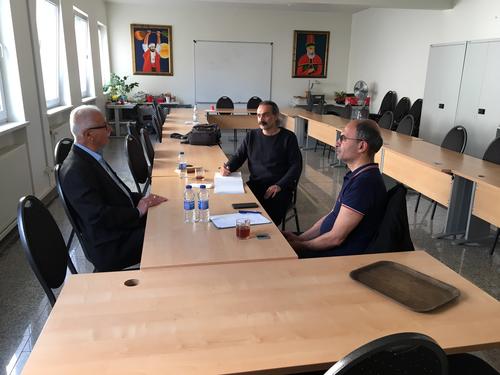Workshop: The Heritage of Diaspora: The Reformation of Alevism in Germany (Berlin) and Contemporary Insights
The Heritage of Diaspora: The Reformation of Alevism in Germany and Contemporary Insights
Image Credit: Ahmet Kerim Gültekin
The Workshop took place in collaboration with Alevitische Gemeinde zu Berlin e. V in April and May 2022 in Berlin.
Report of Dr. Ahmet Kerim Gültekin the organizer of the Workshop: Alevis are the most extensive religious minority in Turkey whose rights are still ignored, suppressed, discriminated against, and subjected to continuous violence. Alevis are also among those who migrated to Germany in large numbers, first, due to economic reasons as “Gastarbeiter”s and then due to political reasons as “asylum seekers”, from the 1960s up today in various migration waves. However, since they are categorised and acted upon as Muslims, they have experienced discrimination in Germany twice as “foreigners” and as “others” -who are regarded as heretics or non-believers- by the Muslim community in Germany.
As a political reflection of the ongoing horrendous Alevi massacres in Turkey in the late 1970s, Alevis established “their own” associations in Germany for the first time. This process turned into a highly traumatised and politicised religious-identity movement in the early 1990s, which emerged as a reaction to several new Alevi massacres that took place in the turmoils of the 1990s in Turkey. After three decades of a fierce struggle for their rights, despite the ongoing problematic situation in Turkey, Alevism is recognised -for the first time in history- in Germany (2021) as an independent religious group with all constitutional rights.
“Alevitische Gemeinde zu Berlin e.V.” is one of the oldest -over half a century- Alevi associations in German history. Its unique story reveals the three generations of Alevi migrants, an exciting transformation picture of “Gastarbeiters” to “German-Alevis”. The workshop allowed me to collect the oral narratives of this long process from the first sources and provided a huge collection of data on which many promising academic studies can be organised. These oral records and my short analyses were also shared with the e.V. allowing them to write about their history.
With the help of the Academics in Solidarity programme`s generous support, I organised a workshop in line with my ongoing fieldwork in Berlin, namely “The Heritage of Diaspora: The Reformation of Alevism in Germany (Berlin) and Contemporary Insights”.


